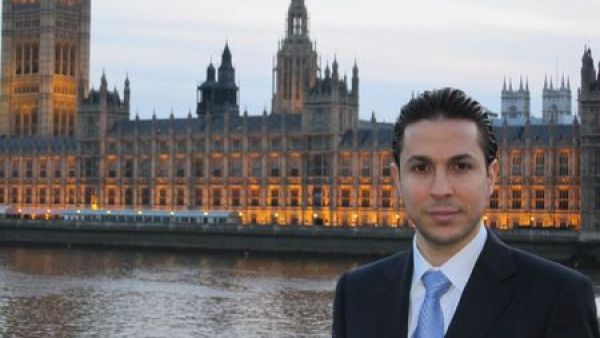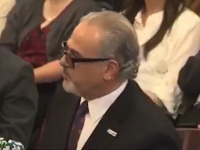Without international consensus on a tougher stance against the Syrian authorities, little progress will be made to support the people of Syria, the British envoy to Jordan said on Monday.
“In Libya we had the Libya fighters themselves and the Arab League asking for help… With respect to Syrians, we still don’t have an international consensus within the United Nations,” UK Ambassador in Amman Peter Millett said.
“We would like to have a resolution which condemns violence and imposes worldwide sanctions against the Syrian regime, but unfortunately we have not been able to achieve that so far,” he added, noting that Damascus has not been listening to the message from Libya.
“[Syrian President] Bashar Assad has ignored all appeals made by the UN Security Council, the EU and the Arab League to stop the cruel and violent repression of his people,” he told reporters yesterday.
“The Syrian people have shown incredible courage and determination in trying to do what all countries have been doing in the region in looking for dignity and open societies,” he said.
Millet added that the UK, Germany and France have pressed Assad to step aside and stop the violence, citing the recent EU decision to adopt new sanctions, including a ban on oil imports and an arms embargo to put economic pressure on the Syrian regime.
The diplomat stressed that Arab regimes should listen to their peoples and interact positively if they wish to avoid the fate of fugitive Libyan leader Muammar Qadhafi.
Briefing the media on the UK’s views regarding the Arab Spring and the people’s demands for reform and democracy, Millett said the British government has welcomed the political reform measures undertaken by the Jordanian government and the constitutional reform amendments.
“We have to be consistent when we talk about our values with respect to the rule of law, democracy, human rights and society openness,” Millett said.
“Having said that, Jordan is in a very good position. Jordan is ahead of the game; the government is listening to what the people are demanding as far as reform is concerned,” he added.
“What happens to these amendments is not up to us, it is up to the Jordanian people to decide. The fact that there is a debate going on about the reform measures is very healthy, but we are not going to say where that debate should come out, simply because it’s not our business,” the ambassador noted.
Libya
During the conference, Millett said the UK praises the Libyan people’s victory over a decades-long dictatorship, hoping that the political process will develop and advance soon in the interest of the people of the North African country.
He stressed that the political process is in the hands of the Libyans themselves, adding that this should mean that the National Transitional Council can become the interim government of Libya and the UN can lead through humanitarian assistance to guide Libya towards political transition.
Millet outlined UK’s measures to unfreeze Libyan assets to support the Libyan transition.
“The Libyan banknotes were being printed in the UK. So we had LD1.86 billion and the Royal Air Force has flown the first consignment, which was 280 million dinars, to the central bank in Benghazi,” he said, noting that the money will be used “to get the economy… back on its feet”.
The British envoy added that Libya is a resource-rich country, voicing hope that the Libyan people can enjoy and benefit from the abundance of resources their country has, after the fall of the Qadhafi regime.
With respect to the Jordanian role in addressing the Libya crisis, Millett said Abdul Ilah Khatib, the UN envoy to Libya, played an important role in trying to bring the two sides together, adding that Khatib worked very quietly behind the scenes trying to generate a sense that Qadhafi’s continuation in power was unacceptable.
Moreover, Millett underscored the importance of the offer His Majesty King Abdullah made during the Paris conference to help train police and offer humanitarian assistance to Libya.
“This should encourage other Arab countries and the Arab League to take a leading role in supporting the political development and social and humanitarian development of Libya,” he said.
Touching on the peace process, Millett said the UK supports the two-state solution and believes that negotiations are the best means to reach an independent Palestinian state.
He added that no decision has been made on whether to support the Palestinian bid to resort to the UN to seek recognition for their independent state.
“We are frustrated that all efforts have so far failed to reach a solution to the Palestinian-Israeli conflict, and I am afraid there is no other option to reach a satisfactory solution except negotiations,” he said.








